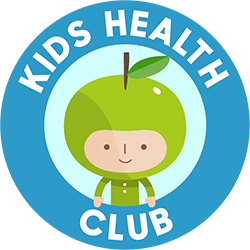Childhood Constipation

Childhood Constipation
Everything we consume must eventually be expelled, with the typical transit time for food ranging from 24 to 30 hours. To test your own transit time, try eating 2 teaspoons of sesame seeds mixed in a cup of water or a cup of beetroot. Note the time you consume these foods and track when the sesame seeds or beet colour appear in your stool.
Constipation can slow down this transit time, causing stools to move more slowly through the intestines. As a result, more water is absorbed, making stools harder and more difficult to pass. Proper gut movement, known as peristalsis, requires magnesium and antioxidants to function effectively.
Causes of Children's Constipation
- Dehydration
- Low fibre intake
- Dairy’s morphine-like effects
- Insufficient healthy gut flora
- Slow peristalsis
- Lack of exercise
Solutions for Kids Constipation
-
Medication as a Short-Term Solution: While medications like bulk-forming laxatives (e.g., Metamucil), stool softeners (e.g., Osmolax), stimulant laxatives (e.g., Dulcolax), and suppositories can offer temporary relief, they do not address underlying causes. Use these only as emergency measures and focus on long-term solutions.
-
Increase Water Intake: Ensure your child drinks enough water daily, adjusting for temperature and activity level. Adding natural flavors like lemon or cucumber can make water more appealing. Recommendations vary by age:
- 5-8 years: At least 5 glasses (1 litre)
- 9-12 years: 7 glasses (1.5 litres)
- 13+ years: 8-10 glasses (2 litres) In hot weather, they may need more.
-
Boost Fibre Intake: Fibre helps bulk up and expedite stool movement. Aim for at least 5 servings of vegetables daily, and consider strategies like packing veggie sticks for snacks, adding them to meals, or hiding them in recipes. Reducing meat consumption and incorporating plant-based proteins like legumes can also enhance gut health and reduce constipation.
-
Consider Removing Dairy: Casein in milk can have morphine-like effects, potentially contributing to constipation. Reducing dairy intake may help alleviate this issue.
-
Enhance Gut Flora: Improving gut flora is crucial. Focus on a varied diet rich in different fibers to support diverse bacterial growth. Probiotic foods like yogurt and sauerkraut, along with supplements, can also aid in improving bowel movements.
-
Ensure Adequate Magnesium: Magnesium supports gut muscle function. Aim to include magnesium-rich foods such as vegetables, legumes, and nuts in the diet. If needed, magnesium supplements like magnesium citrate can help alleviate constipation.
-
Try Abdominal Massage: A clockwise tummy massage can help move stool through the intestines more efficiently.
-
Adjust Toilet Position: Elevating the feet with a stool can create a squatting position, making bowel movements easier.
-
Address Lifestyle Factors: Regular exercise, including activities like trampoline jumping and twisting exercises, can promote bowel movement. Additionally, stress reduction is crucial. Techniques like warm baths, relaxation apps, calming music, or soothing stories can help transition your child into a relaxed state, making bowel movements smoother.


